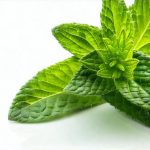The pursuit of holistic wellness is increasingly driving interest in natural approaches to support our bodies’ inherent resilience. In recent years, adaptogens have risen in prominence as herbal supplements touted for their ability to help us navigate stress and maintain equilibrium. Simultaneously, the critical role of the gut microbiome – the vast community of microorganisms residing within our digestive tract – has become undeniably clear. It is now understood that these two seemingly separate areas are deeply interconnected, with adaptogens potentially influencing gut health, and conversely, the gut microbiome impacting how we respond to and utilize adaptogenic herbs. This complex interplay represents a fascinating frontier in wellness, offering possibilities for more personalized and effective strategies to support overall health.
Understanding this connection is crucial because it moves beyond simply taking an herb or focusing solely on digestion. It recognizes that our bodies function as integrated systems where the effectiveness of any intervention depends on the broader biological context. Adaptogens aren’t magic bullets; their impact is shaped by individual factors, including our unique gut microbial composition. Similarly, a healthy gut isn’t merely about consuming probiotics—it’s about cultivating an environment that supports both beneficial bacteria and the effective absorption and utilization of compounds like adaptogens. This article will explore the fascinating relationship between adaptogens, herbal supplements, and their interaction with gut bacteria, offering insights into how we can harness this synergy for optimal wellbeing.
Adaptogens: Mechanisms & Popular Choices
Adaptogens are defined as natural substances considered to help the body resist various stressors – physical, chemical, or biological. They’re not about eliminating stress altogether; rather, they aim to modulate the body’s response to it, promoting homeostasis. This means helping us adapt and thrive even under challenging circumstances. The concept originated in Soviet-era research, where scientists sought ways to enhance resilience in cosmonauts and military personnel. Key characteristics of true adaptogens include being non-toxic at normal doses, producing a normalizing effect on bodily functions, and offering a broad spectrum of adaptive actions.
Several herbs are commonly categorized as adaptogens, each with its own unique properties and traditional uses. Ashwagandha (Withania somnifera) is perhaps the most well-known, often used to manage stress, improve cognitive function, and promote sleep. Rhodiola rosea, another popular choice, is valued for its potential to enhance mental performance and reduce fatigue. Other frequently cited adaptogens include: – Holy Basil (Tulsi): Traditionally used in Ayurvedic medicine to support immune function and emotional balance. – Panax Ginseng: Known for boosting energy levels and improving cognitive function. – Cordyceps mushrooms: Often utilized to enhance athletic performance and lung capacity. – Schisandra chinensis: Used traditionally for liver protection and increased stamina.
It’s important to note that the science behind adaptogens is still evolving. While many traditional uses are supported by emerging research, more robust clinical trials are needed to fully understand their mechanisms of action and optimal applications. However, growing evidence suggests that these herbs can indeed influence various physiological systems, including the hypothalamic-pituitary-adrenal (HPA) axis – our central stress response system – as well as immune function and energy metabolism. The effects aren’t typically immediate or dramatic; instead, they are often subtle but cumulative, building resilience over time with consistent use.
Gut Microbiota & Its Influence on Adaptogen Bioavailability
The gut microbiome is a complex ecosystem comprised of trillions of bacteria, fungi, viruses, and other microorganisms residing in our digestive tract. It’s increasingly recognized as a critical regulator of overall health, influencing everything from immune function to mental wellbeing. A diverse and balanced gut microbiome is associated with improved digestion, enhanced nutrient absorption, reduced inflammation, and even better mood regulation. Conversely, dysbiosis – an imbalance in the gut microbial community – has been linked to various chronic diseases.
The relationship between the gut microbiome and adaptogens isn’t a one-way street. Adaptogens can potentially influence gut health by modulating inflammation and supporting immune function. However, the gut microbiome also plays a crucial role in determining how effectively we absorb and utilize adaptogenic compounds. Many of these herbs contain complex molecules that require microbial metabolism to become bioavailable – meaning they need to be broken down or transformed by gut bacteria into forms our bodies can actually use. For example, glycosides found in many plant-based supplements often require enzymatic breakdown by gut bacteria before being absorbed.
Furthermore, the microbiome influences the HPA axis, which as previously mentioned, is central to stress response and adaptogen mechanisms. Certain gut microbes produce neurotransmitters like serotonin and GABA, which play a role in mood regulation and can be impacted by stress. An unhealthy gut microbiome can disrupt this delicate balance, potentially diminishing the effectiveness of adaptogens aimed at managing stress and anxiety. Therefore, optimizing gut health isn’t just about digestive wellbeing; it’s about maximizing the benefits we derive from natural therapies like adaptogenic herbs. You might also consider screening options for those with weight loss to gain a clearer understanding of your gut health.
Adaptogen Metabolism & Microbial Interactions
The process by which our bodies metabolize adaptogens is significantly influenced by the composition of our gut microbiome. Different bacterial species possess varying enzymatic capabilities, impacting how effectively they can break down and transform herbal compounds. For instance, certain bacteria are proficient at hydrolyzing glycosides, releasing active constituents like ginsenosides from Panax Ginseng or withanolides from Ashwagandha. Others may facilitate the conversion of precursors into more potent metabolites.
- The presence of beneficial bacteria, such as Bifidobacteria and Lactobacilli, is often associated with enhanced adaptogen bioavailability. These microbes contribute to a healthier gut environment that supports optimal enzymatic activity.
- Conversely, an overgrowth of potentially harmful bacteria can hinder the metabolism of adaptogens or even produce metabolites that negate their beneficial effects.
- Microbial interactions are also at play: Some bacterial species may synergistically enhance the breakdown of herbal compounds, while others may compete for resources or inhibit each other’s activity.
This highlights the personalized nature of adaptogen response. What works well for one person might not work as effectively for another due to differences in their gut microbial composition. Understanding this interplay is essential for tailoring adaptogenic protocols to individual needs and maximizing their therapeutic potential. Analyzing a patient’s microbiome via stool testing can offer valuable insights into their ability to metabolize specific herbal compounds, guiding treatment decisions and ensuring optimal outcomes. For more on supporting your gut, you may find how to balance gut bacteria helpful.
The Role of Short-Chain Fatty Acids (SCFAs)
Short-chain fatty acids (SCFAs) are metabolic byproducts produced when gut bacteria ferment dietary fiber. They are crucial for maintaining gut health, reducing inflammation, and supporting immune function. SCFAs like butyrate, propionate, and acetate have far-reaching effects on the body, influencing everything from brain health to cardiovascular function.
A healthy gut microbiome rich in fiber-fermenting bacteria will produce abundant SCFAs. These SCFAs not only nourish the cells of the intestinal lining but also modulate the HPA axis, potentially enhancing the stress-reducing effects of adaptogens. Butyrate, in particular, has been shown to reduce inflammation and improve gut barrier integrity, creating a more favorable environment for nutrient absorption and overall wellbeing.
Adaptogens can indirectly support SCFA production by promoting a healthier gut microbiome. By reducing stress and supporting immune function, they help create an environment where beneficial bacteria can thrive. Furthermore, some adaptogenic herbs themselves contain prebiotic fibers that feed these beneficial bacteria, further boosting SCFA production. This creates a positive feedback loop: adaptogens support gut health, which enhances their own bioavailability and effectiveness. If you struggle with chronic pain, exploring dealing with invisible gut pain might offer some relief.
Strategies for Optimizing Gut Health & Adaptogen Synergy
Given the intricate relationship between adaptogens and the gut microbiome, adopting strategies to optimize gut health is paramount for maximizing the benefits of these herbal supplements. Here are some key steps:
- Dietary Diversity: Consume a wide variety of plant-based foods rich in fiber, including fruits, vegetables, whole grains, and legumes. This provides fuel for beneficial gut bacteria and promotes microbial diversity.
- Fermented Foods: Incorporate fermented foods like yogurt (with live cultures), kefir, sauerkraut, kimchi, and kombucha into your diet. These foods introduce beneficial bacteria to the gut and contribute to a healthier microbiome. Learning about fermented foods and their impact can help you make informed choices.
- Prebiotic-Rich Foods: Include prebiotic-rich foods such as garlic, onions, leeks, asparagus, bananas, and oats in your meals. Prebiotics are non-digestible fibers that feed beneficial gut bacteria.
- Minimize Processed Foods & Sugar: Reduce consumption of processed foods, refined sugars, and artificial sweeteners, as these can disrupt the gut microbiome and promote inflammation.
- Stress Management: Implement stress-reducing techniques like meditation, yoga, deep breathing exercises, or spending time in nature. Chronic stress negatively impacts gut health and diminishes the effectiveness of adaptogens.
- Consider Probiotic Supplementation (with caution): While probiotics can be helpful for some individuals, it’s important to choose strains that are appropriate for your specific needs and consult with a healthcare professional. Not all probiotics are created equal, and indiscriminate use can sometimes disrupt gut balance.
- Personalized Microbiome Testing: Consider undergoing microbiome testing to identify imbalances in your gut microbial community and guide targeted interventions, including dietary changes, probiotic supplementation, or adaptogen choices. Acidic versus alkaline foods can also play a role in gut health.
By prioritizing gut health alongside the strategic use of adaptogens, we can unlock their full potential for supporting resilience, wellbeing, and a more balanced life. It’s a holistic approach that recognizes the interconnectedness of our bodies and empowers us to nurture both inner and outer harmony. Finally, consider meal organization techniques for long term health!


















